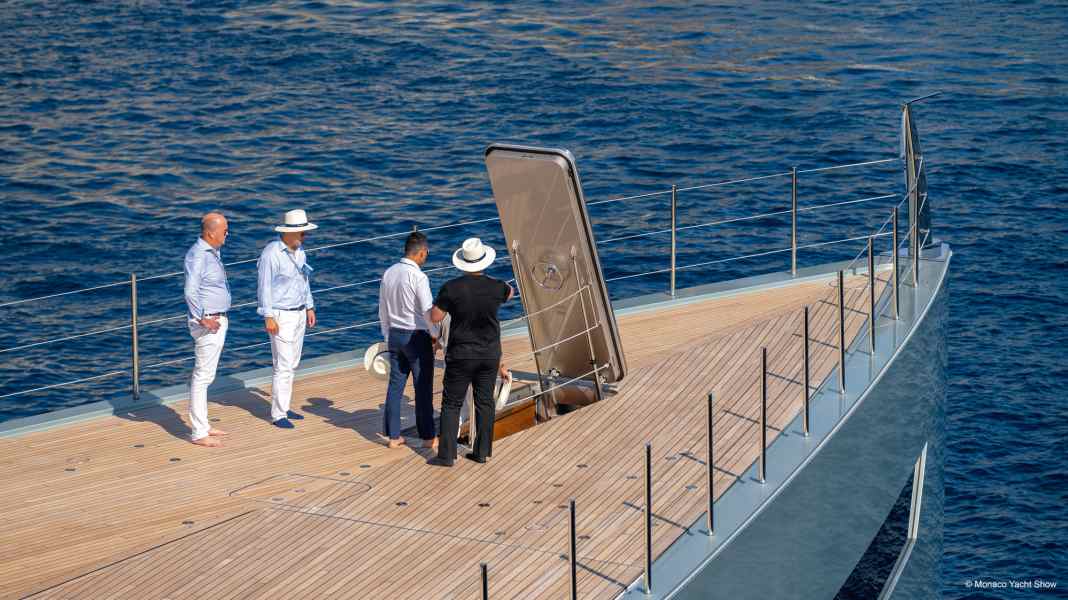
When purchasing a yacht, the standard contract of the Mediterranean Yacht Brokers Association ("MYBA"), the so-called MYBA Memorandum of Agreement ("MYBA-MoA"), often plays a decisive role. As a general, internationally established contract template, it provides the buyer with a certain structured and legally secure basis when deciding to purchase a yacht. On the other hand, it also gives the buyer a certain degree of flexibility, which is likely to be particularly important for buyers who are still undecided.
The importance of the MYBA-MoA when buying a yacht
When buying a used yacht, the MYBA-MoA is often used, which is usually customised to the individual needs of the contracting parties. The usual procedure under the MYBA MoA can be briefly summarised as follows: First, the parties agree on a purchase price and the buyer makes a down payment (usually 10% of the purchase price). A date is agreed by which the seller must have made the yacht available to the buyer for a sea trial and a condition survey. It is also agreed by when the sale must be completed, i.e. the yacht must be handed over and the deposit and the remaining purchase price must be released and paid to the seller.
"Sea Trial" vs. "Condition Survey"
A central element of the MYBA-MOA is the buyer's right to a detailed inspection of the yacht. Clauses 26 ("Sea Trial") and 27 ("Condition Survey") of the MYBA-MOA regulate the exact procedure and legal consequences of the two trials. They grant the buyer - even after conclusion of the MYBA-MOA and after payment of the deposit - the right to withdraw from the purchase contract under certain conditions if the yacht proves to be unsatisfactory during the trials.
Under the Sea Trial, the buyer has a broad right of cancellation ("If the buyer considers for any reason whatsoever [...] that the Yacht has not performed to his/her/its satisfaction"). In order to unilaterally withdraw from the contract, it would therefore be sufficient for the buyer not to like the colour of the seat covers of a sofa unit in the yacht with changing sun reflection. However, the prerequisite for this is that a sea trial has actually taken place. If the buyer does not exercise his right to carry out the sea trial, it is assumed that he accepts the yacht.
More about yacht law:
As part of the subsequent condition survey, which usually takes place on land, the buyer's cancellation options are more limited. There must be a significant defect which, in the opinion of the expert involved, impairs the functionality of the yacht or its systems or makes the yacht unseaworthy ("Defect in the Yacht or her machinery or her systems [...] which [...] renders the Yacht unseaworthy and/or affects the operational integrity of the Yacht or her machinery or her systems").
It should be noted that the buyer's right to withdraw from the contract is subject to certain formal requirements and deadlines in both the Sea Trial and the Condition Survey. In the event that the buyer no longer wishes to continue the contract, it is therefore important to know the exact requirements in the purchase contract and to comply with them.
Viewing the yacht - an essential step
The buyer should also utilise the right granted under the MYBA MoA to inspect the yacht in detail. After all, this inspection is not just a formality, but a crucial step in the purchase process. The inspection should ensure that the yacht meets the expectations and requirements of the prospective buyer. Buyers should take sufficient time and call in expert assistance to thoroughly inspect the yacht - from the hull (underwater hull!) to the interior of the engine rooms.
It is important to pay attention to details: What is the condition of the hull? Are the surfaces free of cracks, wear and tear or other visible damage? Are the technical systems, such as the engine, electrics, water and sewage systems and navigation systems, working properly? The condition of the interior is also very important. Does the layout of the rooms meet your needs? Is the equipment well maintained?
Expert's report for the purchase of a yacht
Experts can help - both as part of the sea trial and the condition survey - to identify hidden defects or technical problems that may not be immediately recognisable to the layman. This ensures that the buyer not only listens to their gut feeling, but also has access to sound information and documented expert reports.
As already mentioned, under clause 27 of the MYBA-MoA, the assessment of an expert is decisive for the assessment of any right to withdraw from the contract. For this reason, too, we strongly recommend that a surveyor be involved in the condition assessment.
If defects are identified during the test, it may make sense to enter into a second round of negotiations with the seller before rashly cancelling the contract. In view of the expert's findings, the seller may agree to a reduction in the purchase price or to carry out certain repairs or make other changes.
Inventory on board
We often find that the inventory on board, such as televisions, games consoles or yacht toys, also plays a role in the decision-making process when buying a yacht. We recommend agreeing with the seller at an early stage which inventory will remain on board and which will be removed before the yacht is handed over. Clause 16 of the current MYBA-MoA provides for an inventory list ("Inventory") in which all accessories covered by the purchase agreement are listed. We recommend being thorough here and including one item too many rather than too few. In this way, unpleasant surprises can be avoided when the yacht is handed over.
Conclusion on buying a yacht
The MYBA-MoA not only offers a clear legal structure, but also gives the undecided buyer the opportunity to inspect the yacht in detail before making a final decision in favour of the purchase. Especially in situations in which the buyer is still struggling with a decision, the concept of testing under the MYBA-MoA helps to cushion these decision-making difficulties. It even offers - under certain conditions - the option of reconsidering the purchase process even after the purchase contract has been signed, even though the contract has already been concluded. It is therefore worth taking a close look at this contract, especially as, in addition to the yacht and inventory, a number of documents must also be handed over so that the yacht can be registered in the name of the new owner and operated by them.
Experts for all questions of yacht law

The yacht lawyers Dr Tim Schommer (tim.schommer@clydeco.com) and Dr Volker Lücke (volker.luecke@clydeco.com) have been advising yacht clients in Germany and abroad for over 18 years. They advise on the planning and construction phase, purchase and sale, ownership structure, yacht operation including insurance, crewing and charter as well as the handling of damage and third-party claims.

